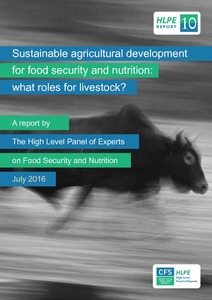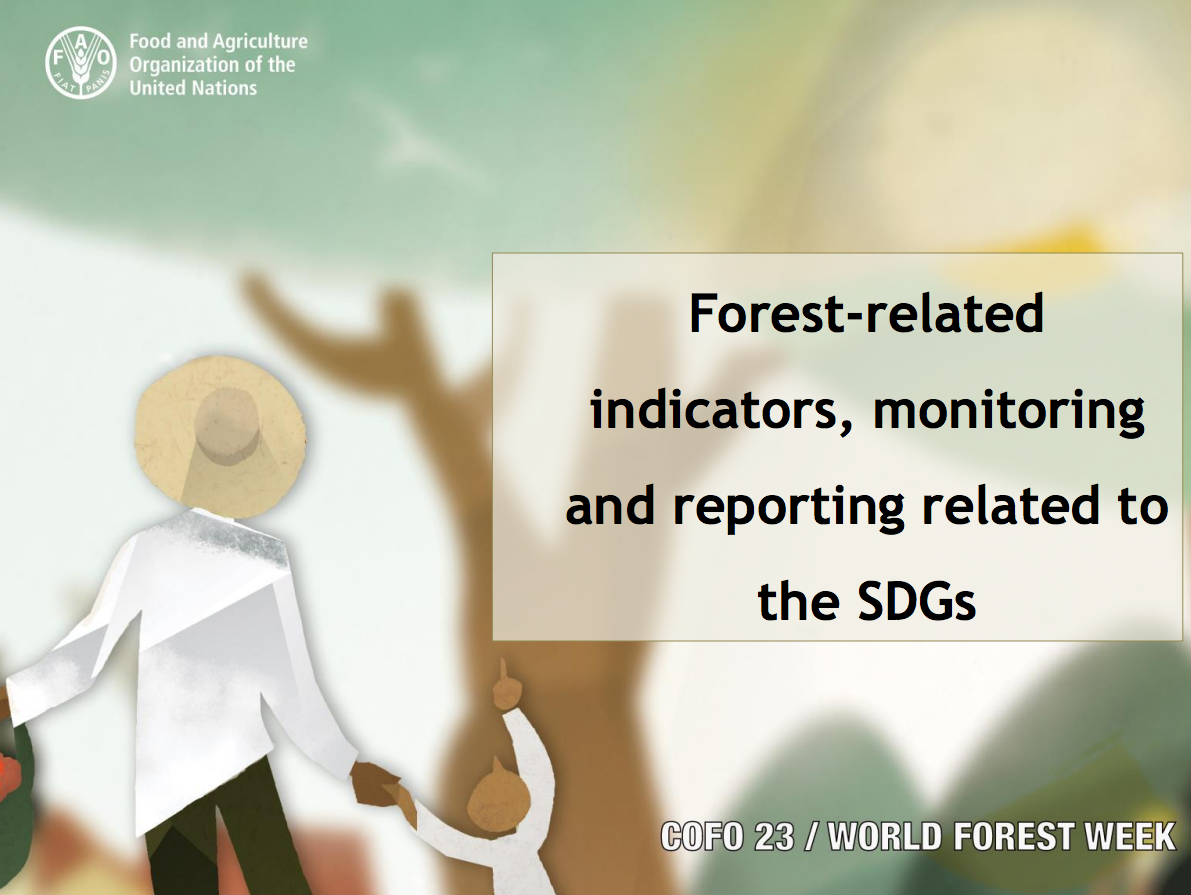Focal point
Location
The Food and Agriculture Organization of the United Nations leads international efforts to defeat hunger. Serving both developed and developing countries, FAO acts as a neutral forum where all nations meet as equals to negotiate agreements and debate policy. FAO is also a source of knowledge and information. We help developing countries and countries in transition modernize and improve agriculture, forestry and fisheries practices and ensure good nutrition for all. Since our founding in 1945, we have focused special attention on developing rural areas, home to 70 percent of the world's poor and hungry people.
Members:
Resources
Displaying 1261 - 1265 of 5073Sustainable agricultural development for food security and nutrition: What roles for livestock? A report by the High Level Panel of Experts on Food Security and Nutrition of the Committee on World Food Security
This report addresses the economic, environmental and social dimensions of agricultural development, with the objective of ensuring food and nutrition security, in terms of availability, access, utilization and stability. It focuses on the livestock component of agricultural systems, given the role of livestock as an engine for the development of the agriculture and food sector, and as a driver of major economic, social and environmental changes in food systems worldwide.
Remote sensing based assessment of the dynamics of crop productivity and spatial production pattern across the Fergana Valley, Central Asia
Agricultural production systems are a vital lifeline of the rural farming community in Central Asia. However, shrinking natural resource base, increased land degradation and severe irrigation water scarcity render current crop production practices not sustainable as these perform below their potential. Though there is considerable scope for improving productivity through bridging the yield gaps and introducing sustainable land management practices. However crop productivity and production pattern varies across scales, mostly driven by irrigation water availability, markets, and
Forest-related indicators, monitoring and reporting related to the SDGs
FAO presentation on Forest-related indicators, monitoring and reporting related to the SDGs.
Sustainable agricultural development for food security and nutrition: what roles for livestock?
This report addresses the economic, environmental and social dimensions of agricultural development, with the objective of ensuring food and nutrition security, in terms of availability, access, utilization and stability. It focuses on the livestock component of agricultural systems, given the role of livestock as an engine for the development of the agriculture and food sector, and as a driver of major economic, social and environmental changes in food systems worldwide.
Mediterranean forests : Towards a better recognition of the economic and social value of goods and services through participative governance
This report takes place within the framework of the regional project “Maximize the production of goods and services of Mediterranean forest ecosystems in the context of global changes” (2012-2016) financed by the French Global Environment Facility together with the German Cooperation (GIZ), the French Ministry of Agriculture, Agrifood and Forestry, and the European Union, in 5 North African (Algeria, Morocco, Tunisia) and the Middle East countries (Lebanon, Turkey).










